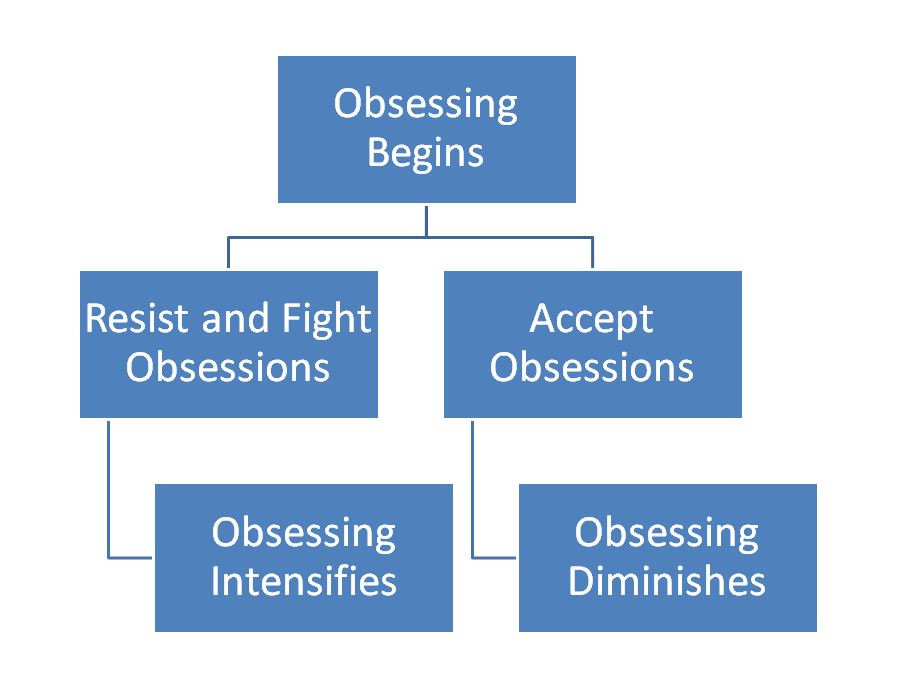What You Can Do Now to Counteract OCD
1. Order Stop Obsessing by Edna Foa
2. Understand the traps that keep your OCD going
- To deal with the distress generated by your obsessions, strategies you are tempted to use (e.g. compulsions such as checking or hand washing; seeking assurance; avoiding situations that provoke anxiety) don;t work. They often bring down anxiety temporarily which is why you are inclined to use them again. However, by doing so, you never get a chance to learn more effective strategies to manage your obsessions.
- Using such strategies does not give you the chance to find out whether the meaning or interpretation you gave to the obsessions was really correct (e.g. “If I hadn’t put all the knives out of sight, perhaps I would have not been able to control my impulses and done something awful!”)
- These strategies produce the opposite effect you wish to achieve. You hope these strategies would help control the obsessions, but they actually make you think about the obsessions more often.
3. Understand the mental mistakes that support OCD
- Inflated responsibility and magical thinking – If you have OCD you have an inflated sense of responsibility. This means you believe you have the power to either cause or prevent bad events that are personally important to you.
- Overimportance of thoughts – Individuals with OCD attach too much importance to their intrusive, admittedly upsetting thoughts. They mistakenly believe normal people don’t have these thoughts. Studies show that normal people have the same kinds of thoughts as those with OCD. People without OCD don’t buy into these thoughts and therefore are not in distress.
- Thought-action fusion – This refers to the almost magical idea that simply having a thought or urge increases the likelihood that it will come true. (“Thinking about cursing in public makes me more likely to do it.”)
- Overestimation of danger – If you have OCD, you likely overestimate the threat of a situation and underestimate your ability to cope with it. For example, if you have a fear of contamination from HIV and see something red, you immediately think it must be blood that contains HIV and that you can’t protect yourself from the risk of infection.
- Intolerance of uncertainty – Because they overestimate threat, ODC sufferers have difficulty tolerating ambiguous situations. They need to have total certainty about their decisions and actions. This need drives them to engage in more rituals and seek out more reassurance. However, trying harder usually increases doubts and the feeling of uncertainty,
Postponing obsessions
1. Mentally agree to pay attention to the obsession.
2. Choose a specific time in the future when you will return to them.
3. As that time arrives either start obsessing or consider postponing the obsessions to
another specified time. Whenever possible, choose to postpone.
Changing the ways you obsess
1. Mentally step back and observe the obsession.
2. Label the obsession. For example, train yourself to say “I don’t think or feel my
hands are dirty. I have an obsession that my hands are dirty.”
3. Write down your obsessive thought. Writing down the obsessive thought will help
you see how repetitive your obsessions are. Writing down the same phrase or urge
hundreds of times will help it lose its power.
4. Remind yourself at the moment that the obsessive content is irrational and not to be
taken at face value. Tell yourself “It’s not me. It’s my stupid obsession. That’s just
my brain producing an intrusive thought that has no meaning. There’s no need to
pay attention to it.”

